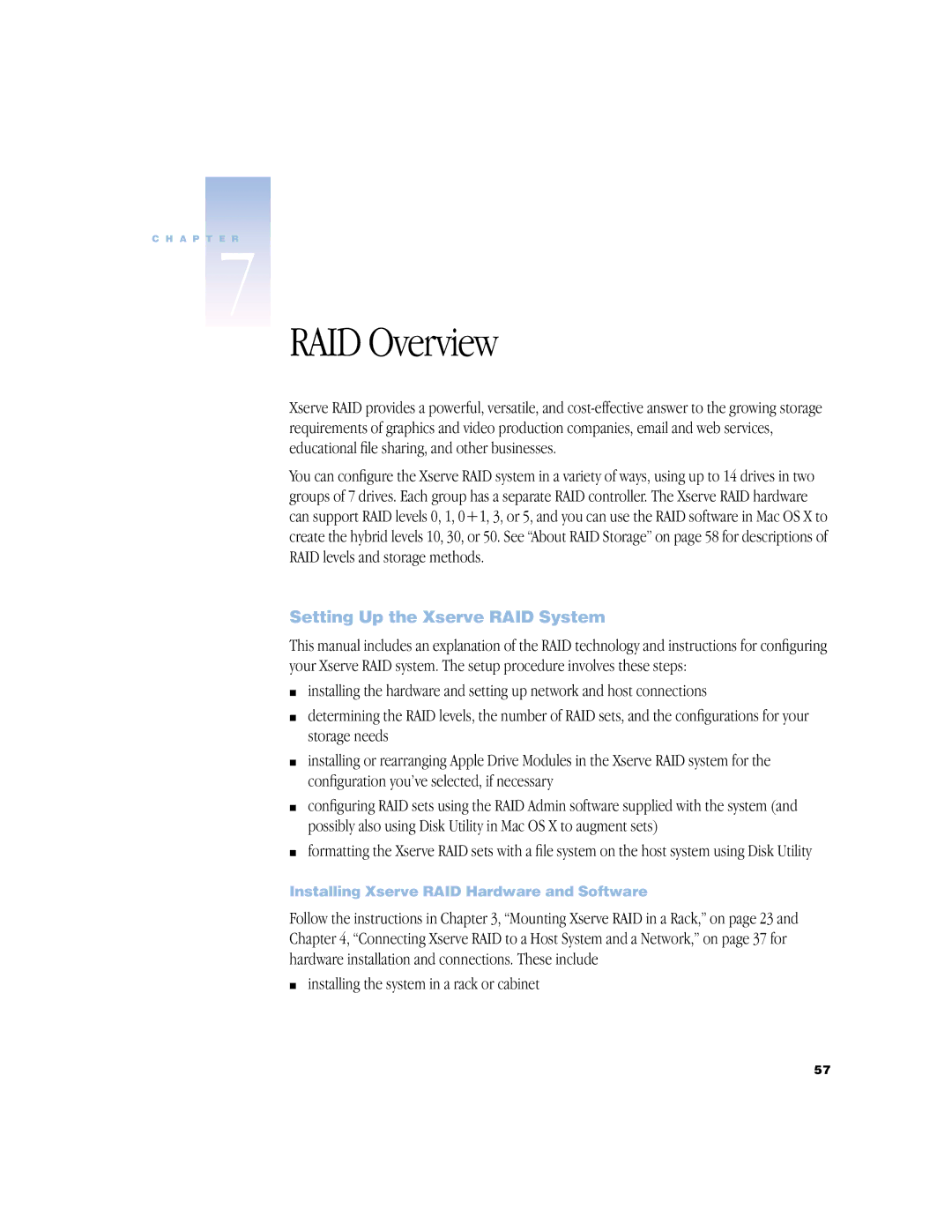
C H A P T E R
7
RAID Overview
Xserve RAID provides a powerful, versatile, and
You can configure the Xserve RAID system in a variety of ways, using up to 14 drives in two groups of 7 drives. Each group has a separate RAID controller. The Xserve RAID hardware can support RAID levels 0, 1, 0+1, 3, or 5, and you can use the RAID software in Mac OS X to create the hybrid levels 10, 30, or 50. See “About RAID Storage” on page 58 for descriptions of RAID levels and storage methods.
Setting Up the Xserve RAID System
This manual includes an explanation of the RAID technology and instructions for configuring your Xserve RAID system. The setup procedure involves these steps:
minstalling the hardware and setting up network and host connections
mdetermining the RAID levels, the number of RAID sets, and the configurations for your storage needs
minstalling or rearranging Apple Drive Modules in the Xserve RAID system for the configuration you’ve selected, if necessary
mconfiguring RAID sets using the RAID Admin software supplied with the system (and possibly also using Disk Utility in Mac OS X to augment sets)
mformatting the Xserve RAID sets with a file system on the host system using Disk Utility
Installing Xserve RAID Hardware and Software
Follow the instructions in Chapter 3, “Mounting Xserve RAID in a Rack,” on page 23 and Chapter 4, “Connecting Xserve RAID to a Host System and a Network,” on page 37 for hardware installation and connections. These include
minstalling the system in a rack or cabinet
57
